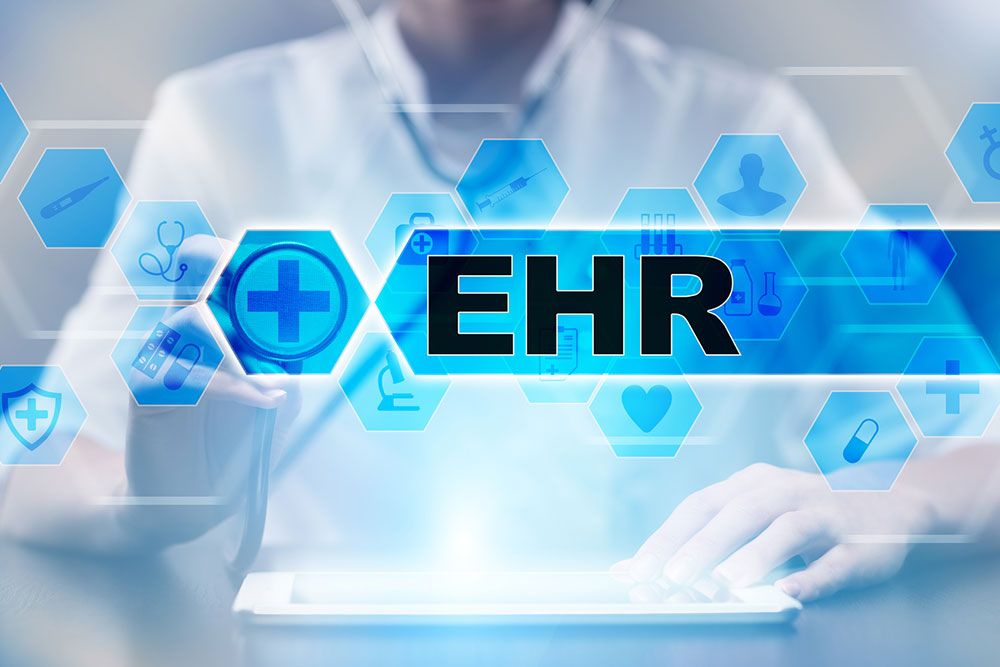EHR System for Psychiatry – Uses and Tips to Consider
Psychiatric facilities, like other healthcare centers, need to maintain patient data to ensure seamless care provision. For this reason, many of them rely on tools like electronic health record (EHR) systems that collect and retrieve patient health data and track patients’ progress. These software solutions can also improve workflows and patient experience. If considering using them, knowing how they work and benefit mental health professionals can help one get the most out of them.

EHR software
An electronic health record (EHR) system is a software solution that allows healthcare professionals to systematically track patient health parameters, bills, schedules, meal plans, and more. This tool can be extremely useful for mental health centers and psychiatry hospitals, where patients with a wide range of mental health conditions may be treated or admitted.
Uses
1. Tracking mental health parameters
While hospitals must maintain records of health parameters like blood pressure, blood sugar, and heart rate, it might be tedious to do so for every patient. Using EHR software to track these parameters makes the process error-free and efficient.
2. Processing bills and insurance details
Manually processing the bills of hundreds of patients can bog down staff members. An EHR software program helps process such bills and check insurance details for reimbursement, increasing efficiency in this task and providing employees with ample time to focus on other things. Also, this data becomes easily accessible. Psychiatrists and other hospital staff can retrieve patient data, billing information, and other such details using EHR systems.
3. Tracking prescriptions
Patients are usually prescribed treatment at specific doses or frequencies depending on the severity of their condition. Manually tracking these details for every patient can be cumbersome and may sometimes have room for errors. With an EHR software system, tracking patients’ prescriptions and monitoring their dosages becomes a streamlined and error-free process .
4. Maintaining treatment records
Knowing a patient’s treatment history is crucial for deciding a treatment course and determining how the patient will react to specific interventions. With an EHR software system, healthcare facilities can track a patient’s treatment history, saving the data in an organized way and retrieving it as and when required. This way, hospitals can ensure that important patient information is safe and can be accessed anytime.
5. Scheduling appointments and setting reminders
It is natural for healthcare professionals to be tied up in their professions and forget the exact dates and timings of their appointments . Also, scheduling appointments for multiple patients and ensuring that timings don’t overlap can be time-consuming. An EHR software application relieves this burden by scheduling appointments, even telehealth ones, and reminding psychiatrists when a visit is due. This way, they do not have to worry about missing their appointments.
6. Automation of repetitive tasks
As important as entering billing information, processing invoices, and keeping track of patient data can be, these tasks are also repetitive and time-consuming. They can bog down staff members at psychiatric hospitals and reduce their efficiency. To deal with this issue , EHR software or applications can be used to carry out data entry quickly, enabling hospital staff to focus on other tasks.
7. Accurate record keeping
Human errors are common and perfectly normal. But, any error in data entry or invoice processing can have a cascading effect on hospitals, leading to serious gaps and patient inconvenience. An EHR mental health software system helps prevent such issues by performing these tasks with incredible perfection without compromising on speed. This way, the accuracy of maintaining records increases .
An automated process for monitoring health parameters enhances patient care considerably. It also enables psychiatrists to track patients’ health statuses and seamlessly compare their previous health records with their current parameters. Finally, monitoring patient health in real time is a great way to detect any health conditions or developments early and ensure timely treatment.
Tips for choosing the right system
1. Consider the provider’s reputation
One of the first steps in shortlisting an EHR software system is ensuring the service provider has considerable experience and expertise in the healthcare tech field. They should also have a basic understanding of psychiatric conditions and how psychiatry hospitals work. Checking out online reviews of the provider and consulting other healthcare professionals and facilities can help one choose a reliable EHR software solution and provider.
2. Set a budget
Market research will help one understand the approximate rates of bespoke mental health EHR software systems. This way, hospitals can determine the approximate expenditure and zero in on an EHR tool that falls within their budget range. The average cost of an EHR software system is $1,200, but this cost may vary depending on the brand and features offered.
3. Check all the features
Before buying an EHR software solution, one should review all its features, including its speed, efficiency, and accuracy, and ensure that its interface is user-friendly. This way, one can avoid unwanted surprises like missing must-have features, technical issues, and lags.
Top options
Today, one can choose from various reliable EHR software providers.
- Epic
- Cerner
- Meditech
- eClinicWorks
- NextGen